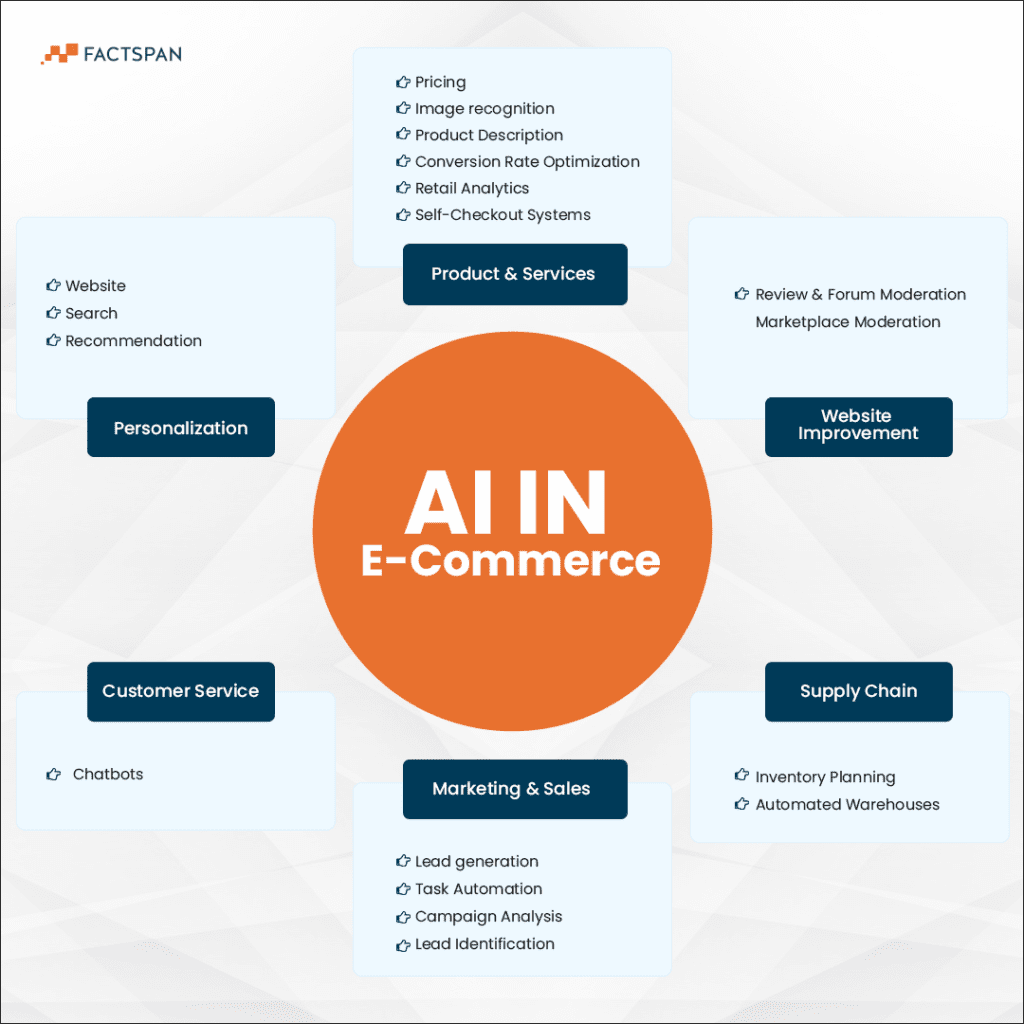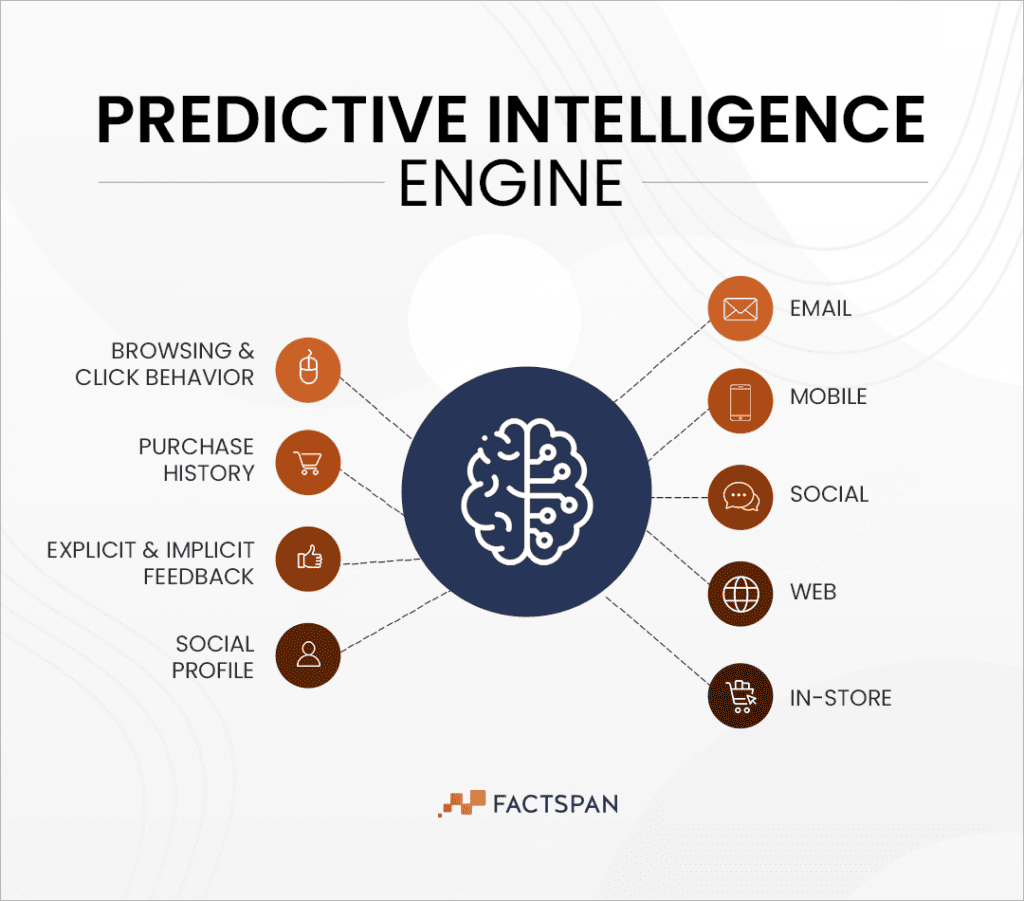Everyone is looking for a means to stand apart in a world where hundreds (or thousands) of comparable eCommerce businesses are vying for their target audience’s attention, loyalty, and sales. They’re looking for a competitive advantage in an environment where gaining one is extremely tough. And that’s where several AI use cases in eCommerce comes into play.
Businesses may better understand their clients and deliver relevant products at the right time and through the right channel by utilizing AI.

By allowing faster and more reliable data, AI also enables organizations to identify competitors’ strategies. What impact will AI have on e-commerce? Here are the top 5 AI use cases in eCommerce:
1. Product Grouping and Smart Autocomplete
On an eCommerce website, a good autocomplete tool does more than guess basic user inquiries. E-commerce giants are now merging NLP algorithms with autocomplete to offer query results that mimic user intent.
Phonetic misspellings, keyboard proximity mistakes, punctuation nuances, and omitted character typos are all typical uses for these algorithms. Is “blue ray,” “blue-ray,” or “bluray” correct? Although “Blu-ray” is the official spelling, you shouldn’t expect users to know this in order to achieve good results.
Additionally, AI enables automatic recognition of products customers buy together frequently on an eCommerce website and present them as recommendations in similar groups.
2. Product Results Re-ranking
Results re- ranking or AI learning-to-rank feature when enabled on an eCommerce site helps drive conversions to the business. Machine learning-powered search algorithms can automatically re-rank search results for products that are most likely to convert.
If 52% of users who search for “refrigerators” buy the fridge in the 8th position and 30% buy the fridge in the 5th position, it makes sense to re-rank the 8th fridge higher and the 5th refrigerator close behind. Other refrigerators that people don’t commonly buy should be pushed to the bottom of the search results.
Hence, Learn-to-rank systems are great for ensuring that your consumers see not just relevant but also appealing results.
3. Personalized Product Recommendations
Customized product suggestions are provided using artificial intelligence and are based on users’ past purchasing behavior and looks.
Websites use machine learning to analyze one’s buying history and propose products that they are most probable to like based on their previous purchases. The data that these eCommerce sites collect with the help of AI can do more than personalization in the context of search. One of the finest examples of this is Amazon, it serves personalized product recommendations on almost every landing page of their website based on their buyer’s purchase history.
4. Predictive Pricing

It’s not new to change product prices based on client demand or elasticity. Consider how the price of an airline ticket fluctuates every time you visit a booking site that too more often when you repetitively visit the same eCommerce site for booking.
The information that eCommerce businesses get from their consumers and competitors, on the other hand, may be utilized for a lot more than just changing prices on the fly. According to Ignite Outsourcing, AI can calculate the greatest price a buyer is likely to accept and still purchase a product. Prices displayed to one client may differ from those displayed to another, or even from those displayed to the same consumer at various times.
Conclusively, the potential of AI in the domain of eCommerce is immense. So many use cases mentioned above improve the usability of your business’ website, optimize performance and sales.
But finding the right services or solutions tailored for your eCommerce enterprise needs is a tough task. And that’s where Factspan can help you in the right direction. Let us be your savior. Talk to our eCommerce experts today!










